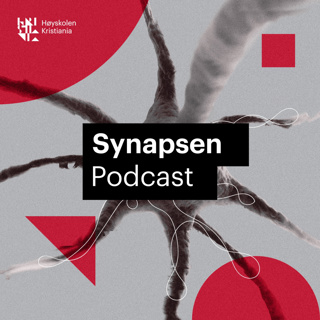
198. Bernardo Kastrup on the Nature of Reality: Materialism, Idealism, or Skepticism
In this expansive conversation, Michael Shermer speaks with Bernardo Kastrup, the executive director of Essentia Foundation. His work has been leading the modern renaissance of metaphysical idealism, the notion that reality is essentially mental. He has a Ph.D. in philosophy (ontology, philosophy of mind) and another Ph.D. in computer engineering (reconfigurable computing, artificial intelligence). Shermer and Kastrup discuss: materialism, idealism, dualism, monism, panpsychism, free will, determinism, consciousness, the problem of other minds, artificial intelligence, out of body and near-death experiences, model dependent realism, and the ultimate nature of reality.
7 Aug 20212h 13min

197. Yaron Brook on Ayn Rand, Atlas Shrugged, and Objectivism
Michael Shermer speaks with entrepreneur, writer, and activist Yaron Brook about Ayn Rand, Atlas Shrugged, Objectivism; individualism vs. collectivism; the nature of human nature; altruism, cooperation, reparations, and charity; the starting point of morality and the foundation of ethics; collective action problems and how they are best solved; our moral obligation to help those who cannot help themselves; the Is-Ought problem of determining right and wrong; reason and empiricism; immigration, abortion, foreign wars, the welfare state, and terrorism.
3 Aug 20212h 6min

196. Annie Murphy Paul — The Extended Mind: The Power of Thinking Outside the Brain
In this conversation about her new book, the acclaimed science writer Annie Murphy Paul explodes the myth that the brain is an all-powerful, all-purpose thinking machine that works best in silence and isolation. We are often told that the human brain is an awe-inspiring wonder, but its capacities are remarkably limited and specific. Humanity has achieved its most impressive feats only by thinking outside the brain: by “extending” the brain’s power with resources borrowed from the body, other people, and the material world. The Extended Mind tells the stories of scientists and artists, authors and inventors, leaders and entrepreneurs — Jackson Pollock, Charles Darwin, Jonas Salk, Friedrich Nietzsche, Watson and Crick, among others — who have mastered the art of thinking outside the brain. It also explains how every one of us can do the same, tapping the intelligence that exists beyond our heads — in our bodies, our surroundings, and our relationships.
31 Jul 20211h 34min

195. Jamy Ian Swiss — The Conjuror’s Conundrum
The most fundamental lesson that all magicians learn is that seeing is not believing. In episode 195, Michael speaks with internationally acclaimed sleight-of-hand artist and 35-year activist for scientific skepticism, Jamy Ian Swiss, about his lively, personal book, The Conjuror’s Conundrum, that takes readers on a magical mystery tour of the longstanding connection between magic and skepticism. Shermer and Swiss discuss: Swiss’s first encounter with fraud, the paranormal and supernatural, magic and mentalism, hot/cold/universal readings, pychics, talking to the dead, James van Praagh, belief, the afterlife, “the amazing” Kreskin, the Alpha Project, and more…
27 Jul 20212h 12min

194. John Mackey (Founder and CEO of Whole Foods Market) on Conscious Capitalism & Conscious Leadership
John Mackey says the treatment for the cancer of crony capitalism is conscious capitalism, grounded “in an ethical system based on value creation for all stakeholders,” which includes not just owners, but employees, customers, the community, the environment, and even competitors, activists, critics, unions, and the media. Mackey cites Google and Southwest Airlines as role models, and pharmaceutical companies and financial corporations as anti-role models. In a surprise pivot, Mackey lays the blame for the myth of the profit motive as the only measure of value at the feet of capitalists themselves. Mackey’s goal is to write a new narrative for capitalism that asks us to care about customers and human beings instead of data points on a spreadsheet.
21 Jul 20211h 47min

193. Chris Edwards on Educational Reform and Thought Experiments
Michael Shermer speaks with Chris Edwards about educational reform, his study and teaching of world history, the problems in K–12 education, the zip-code model vs. the seat time model of education and how they result in massively different educational outcomes, how “no child left behind” left children behind, federal vs. state educational systems, cheating scandals and what to do about them, the future of education in a world of free (or nearly free) online learning, comparing the U.S. educational system to other countries. Shermer and Edwards also discuss thought experiments, based on Edwards’ latest book, Thought Experiments: History and Applications for Education.
17 Jul 20212h 3min

192. Lesley Newson & Peter Richerson — A New Look at Human Evolution
In a few decades, a torrent of new evidence and ideas about human evolution has allowed scientists to piece together a more detailed understanding of what went on thousands and even millions of years ago. Lesley Newson and Peter Richerson, a husband-and-wife team based at the University of California, Davis, have spent years together and individually researching and collaborating with scholars from a wide range of disciplines to produce a deep history of humankind. In A Story of Us, they present this rich narrative and explain how the evolution of our genes relates to the evolution of our cultures.
10 Jul 20212h 1min

191. Michael Gordin on the Fringe of Where Science Meets Pseudoscience
Everyone has heard of the term “pseudoscience”, typically used to describe something that looks like science, but is somehow false, misleading, or unproven. Many would be able to agree on a list of things that fall under its umbrella — astrology, phrenology, UFOlogy, creationism, and eugenics might come to mind. But defining what makes these fields “pseudo” is a far more complex issue. Given the virulence of contemporary disputes over the denial of climate change and anti-vaccination movements — both of which display allegations of “pseudoscience” on all sides — there is a clear need to better understand issues of scientific demarcation. Shermer and Gordin explore the philosophical and historical attempts to address this problem of demarcation.
3 Jul 20211h 31min




















